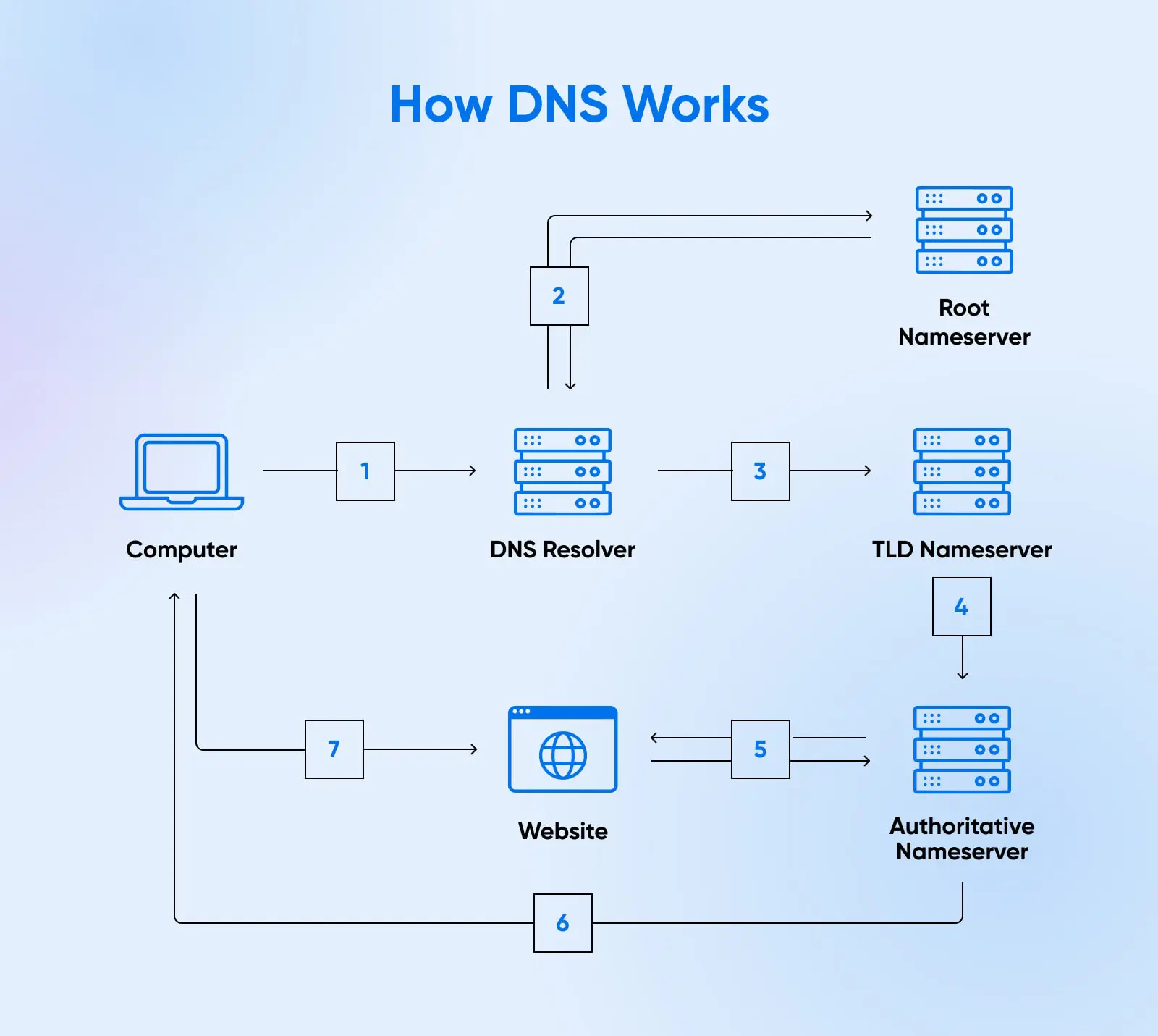When browsing the internet, typing just the domain name is usually enough to access a website. For example, you type www.examplesite.com in your browser and reach the relevant website within seconds. However, behind this seemingly simple process lies a com
What is a NameServer? The Invisible Guide of the Internet
When browsing the internet, typing just the domain name is usually enough to access a website. For example, you type www.examplesite.com in your browser and reach the relevant website within seconds. However, behind this seemingly simple process lies a complex but efficiently operating system. One of the most critical parts of this system is the "NameServer."
Translating Internet Language to Human Language
Computers and servers work with IP addresses. These addresses generally consist of numbers and are expressed as sequences like 192.168.1.1 or 185.60.216.35. It's quite difficult for humans to remember these numbers. This is where domain names come into play. Domain names give user-friendly names to IP addresses composed of numbers. However, browsers cannot directly understand these names. This is exactly where NameServers step in.
NameServers translate domain names typed by users into corresponding IP addresses, enabling web browsers to connect to the correct server. This process is technically part of a system called DNS (Domain Name System).
How Does a NameServer Work?
When you type a domain name in your browser, this name is first directed to the DNS system. The DNS finds the NameServer corresponding to that domain name. The NameServer then searches for records of that domain name in its database. These records are called DNS records and typically contain IP addresses. When the appropriate record is found, the NameServer transmits this information to the browser. The browser then pings the received IP address to establish a connection with the relevant server and brings the website to you.
Although this process sounds lengthy, it occurs within milliseconds. In fact, you often don't even notice these steps. NameServers work extremely fast because this system needs to operate without delay for internet traffic to continue uninterrupted.
The Difference Between DNS and NameServer
The terms DNS and NameServer are often confused. Although both are involved in similar tasks, they are actually different things. DNS is the general system that matches all internet domain names with IP addresses. It's like a phone directory for the internet. DNS records are the content of this system; they consist of data showing which IP address belongs to which domain name.
A NameServer, on the other hand, is a special server that holds, manages, and provides these records when needed. A NameServer stores DNS records for a specific domain name and provides this information based on incoming requests. In other words, a NameServer serves as a kind of library that organizes and makes DNS data accessible. DNS records are like books in this library.
Why Are They Important?
If NameServers didn't exist, we would have to memorize the IP address of every site to browse the internet. This would greatly complicate both user experience and the functioning of the internet. Additionally, considering that each server can have multiple IP addresses that may change over time, the function of NameServers becomes even more critical. Thanks to them, domain names are directed to IP addresses accurately and quickly.
Moreover, websites can direct to servers located in different geographical locations. NameServers also handle this routing process, allowing users to reach the closest and fastest server. This positively affects the user experience.
NameServer from a Website Management Perspective
For website owners, NameServers also provide administrative convenience. DNS records of a domain name may be distributed across multiple servers. NameServers centralize these records, offering easier management. For example, when an IP address of a domain name changes, it's sufficient to make this update only through the NameServer. Other systems automatically receive this change.
Conclusion
NameServer is an invisible but indispensable part of the internet. It acts as a bridge that meets the needs of both users and machines by translating domain names to IP addresses. These servers, having a critical role within the DNS system, are the silent heroes in the background of the internet. Thanks to a fast, reliable, and accurate NameServer infrastructure, we can access information from any corner of the world by typing just a few words. Without NameServers, which are fundamental to this magical operation of the internet, a web experience as we use it today might not have been possible.
